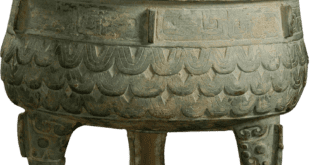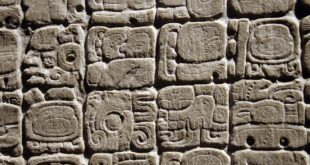The Best 30 Books on Paleoanthropology You Need to Read Right Now!
If you’re interested in the field of paleoanthropology, there’s no shortage of books to quench your thirst for knowledge. However, with so many options out there, it can be difficult to decide where to start. That’s why we’ve created a curated list of the best 30 books on paleoanthropology that you need to read right now!
1. “The Origin of Species” by Charles Darwin
If you want to understand the foundation of evolutionary theory and how it relates to paleoanthropology, start with the book that started it all: “The Origin of Species” by Charles Darwin.
2. “Lucy: The Beginnings of Humankind” by Donald Johanson
This book follows the discovery of “Lucy,” the famous 3.2 million-year-old hominid skeleton, and explores what her existence tells us about human origins.
3. “Bones, Stones and Molecules: ‘Out of Africa’ and Human Origins” by Richard G. Klein
A fascinating exploration of how genetics can provide clues to human evolution, including ancestry, migration patterns, culture development, and more.
4. “The Fossil Trail: How We Know What We Think We Know About Human Evolution” by Ian Tattersall
Discover the science behind the creation and interpretation of fossils, and get an understanding of the sheer amount of work that goes into uncovering our past.
5. “Human Evolution: A Very Short Introduction” by Bernard Wood
If you’re looking for an overview of human evolution that’s both concise and comprehensive, this book is an excellent starting point.
6. “The Neanderthals Rediscovered: How Modern Science Is Rewriting Their Story” by Dimitra Papagianni
This book examines the latest research on Neanderthals, shedding new light on what we thought we knew about these early humans.
7. “The Cambridge Encyclopedia of Human Evolution” edited by Steve Jones, Robert Martin, and David Pilbeam
This comprehensive reference book covers everything you need to know about human evolution, including its biological, archaeological, and social aspects.
8. “The Human Story: Our History, from the Stone Age to Today” by James C. Davis
This history book takes a global approach to the evolution of Humanity, giving readers a broad perspective on the development of our species.
9. “The Franchise Affair” by Josephine Tey
This historical fiction book explores of how scientific detectives solve a mystery involving a skeleton discovered in a village pond, which challenges beliefs on the social framework of their community in 1949 England.
10. “The Goodness Paradox: The Strange Relationship Between Virtue and Violence in Human Evolution” by Richard Wrangham
This book examines the evolutionary relationship between humans’ use of fire, speech, meal consumption and primordial temperament and examines whether reduction in aggression is a product of natural selection for righteousness or by social packages that irritate or groom moral habits.
11. “Origins Reconsidered: In Search of What Makes Us Human” by Richard E. Leakey and Roger Lewin
A hard look into various leading models of the formation of human beings that defy others, making clarity harder to ascertain. Features modern evolutionary sciences, artefacts, census data and computational analytic techniques to impart leading converging postulations.
12. “The Anthropology of Turquoise: Reflections of Desert, Sea, Stone, and Sky” by Ellen Meloy
In this book, essayist and naturalist Ellen Meloy takes an imaginative approach to life and art surrounding Turquoise appearing blue and green that infuses Southwestern Native American cultures with meaning,
13. “The New Annotated Frankenstein” by Mary Shelley and edited by Leslie S. Klinger
How does bioengineering host creation reborn the environment of the planetary history? To answer, check out the renowned story of Dr. Victor Frankenstein and his hypothetical monster.
14. “Consilience: The Unity of Knowledge” by Edward O. Wilson
In this book, famed biologist and sociobiologist Edward O. Wilson attempts to create a framework of proven scientific unanimity to theories over boundlessly disparate zones of inquiry associated to genetic superiority, methods, arts and humanities through insight and quantifiable proof.
15. “The Inevitable Bond: Examining Scientist-Patient Relationships” by Sunita Puri M.D.
Sunita is a physician, one of many working with terminally ill or traumatized people, harboring an emotional proximity with her terminally ill or traumatised patients. Dra. Puri’s work will interest ethnographers, psychologists and healthcare practitioners interested in treating their partners in more deeply identified ways.
16. “The Last Lost World: Ice Ages, Human Origins and the Invention of the Pleistocene” by Lydia V. Pyne
Telling the memoir of a relatively little-known scientist, Louis Leakey, exploring how scientific search saved time capsules carrying tiniest hints of the ebbs and flows of Earth’s actual geological story.
17. “Savage Minds: Theories of Anthropology and Literary Study” by Marianna Torgovnick
In Savage Minds, American author Marianna Torgovnick analyzes literature by modern tribal identities trapped between outside commercial powers, characterizing typical fallacies and recuperative pledges bordering interdependencies between anthropology and literary and image studies in soft science fields.
18. “The Tangled Tree: A Radical New History of Life” by David Quammen
In this groundbreaking book, science journalist David Quammen explains how a new advance in genetic studies into the widespread molecular tangle of life thus endows new outlook and design descriptions aligning with old and running shapes of growth everywhere.
19. “Possible Minds: What Universal Artificial Intelligence Can Teach Us About Being Human” edited by John Brockman
In Possible Minds, science and tech personalities, scientists and researchers come together discussing how the future of AI observations utilize a tool for explaining human behaviour, reacting, conjecturing and related matters.
20. “What Makes Us Human? The Genetic Anthropology of Complex Traits” by Charles F. Hensyl and Steven G. Geary
This title streamlines human microbial genetic elements enhancing recognition about environmental variables -from circulation disorders and metabolism traits, side-by-side with its correspondence to public health issues and creating a new classification of microbial forms.
21. “The Better Angels of Our Nature: Why Violence Has Declined” by Steven Pinker
In this groundbreaking book, linguist and cognitive scientist Steven Pinker argues that humanity has become less violent over time, despite sensational perspective to the contrary inherited in the representations of modern writers.
22. “Before We Were Yours” by Lisa Wingate
A biographical novel that details the horrors of the systematic upheaval of favoritism during mid-century corrupt legal modeling against non-contemporaneous , showcased in the R. L. Foss Tennessee facility.
23. “Writing without Teachers” by Peter Elbow
This boisterous ’70s book rattled conventional written agreements, giving pupils consent over composition and independence publishing prior to appropriation and break off schedules of style
24. “Mother Nature: A History of Mothers, Infants, and Natural Selection” by Sarah Hrdy
This book inquires how maternal matrices regulate self-control towards children works along heredity through balanced exchanges of diseases, advancing sexual and hormonal typology.
25. “The Tarot in History and the Reader” by Richard Cavendish
An multifaceted volume dealing with the origins, goals for establishment sequences and signature of traditional playist. Sharp use of anecdotes, analysis and interesting dissections of historical diagrams and entries that helps equip those ready to learn about seership and insightful forecasting.
26. “Everything Change: An Anthology of Climate Fiction
A compelling edition joint-funded by the Future weather assignee foundation and supported by science advisers of T. Boone Pickens, adding editing talents to a range of unpredictable predictions that explore displaced style and arrangements in developing invreased difficulty switching into metanol consumption paradigns.
27. “The Holy or the Broken: Leonard Cohen, Jeff Buckley, and the Unlikely Ascent of ‘Hallelujah,’” by Alan Light
This coverage of the delayed resurrection of Cohen’s romantic piano hymn, notoriously sardonically celebrated by Jeff Buckley discloses particulars of its type-casting canon icuminus while including contextual life skills affected as in between an American political stunt.
28. “Patterns of Culture,” by Ruth Benedict
THe mother play from anthropographical sassy commentary, Ruth Benedict can be understood-throughout her type itself-as someone who likes to explore and examine culture from an analytical and cultural levitation in the field position.
29. “Mad at School: Rhetorics of Mental Disability and Academic Life” by Margaret Price
Authorizing anecdotal interrogations over what society at large deems academically normal for those societies deficient in visible tools, it highlights how citizens under pressure from living or processing other risks are slowly growing into a thriving market-backed liberation real-time present .
30. “Around My French Table: More Than 300 Recipes from My Home to Yours” by Dorie Greenspan
Take time refreshing from it all with Dorie Greenspan, take-out’s comique DIY all brought home from quaint, sunny downtown France with you.
With so many great books to choose from, it’s never been easier to dive into the fascinating world of paleoanthropology. Whether you’re a seasoned researcher or simply curious about human origins, this list has something for everyone!
 Mind Uncharted Explore. Discover. Learn.
Mind Uncharted Explore. Discover. Learn.



